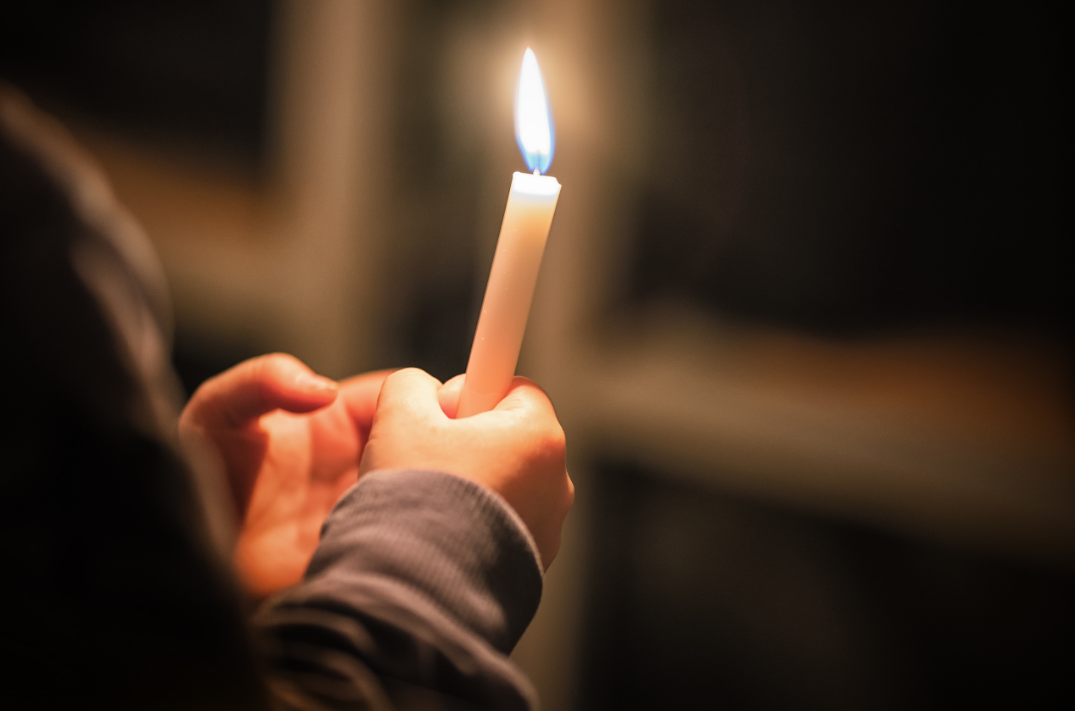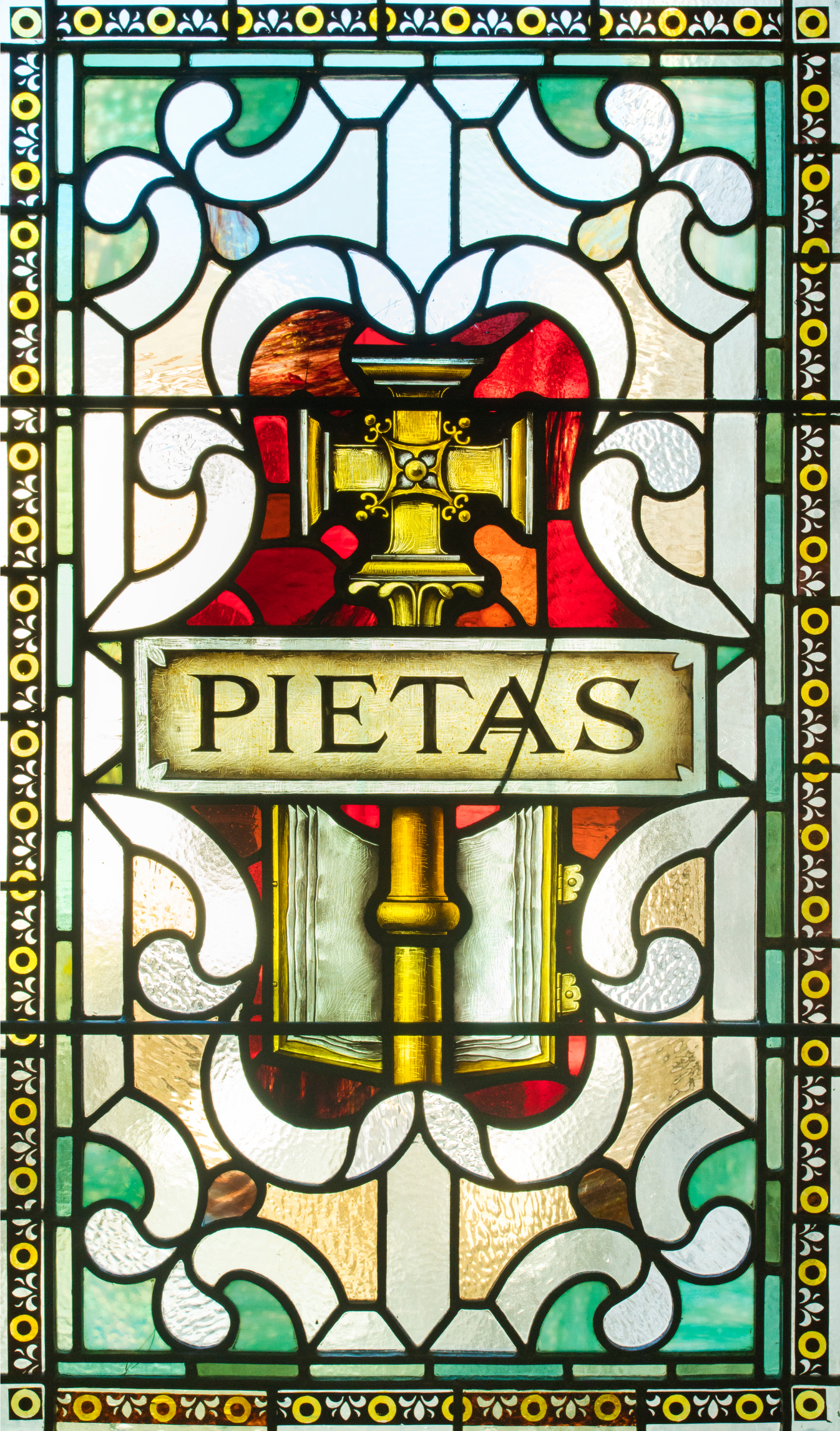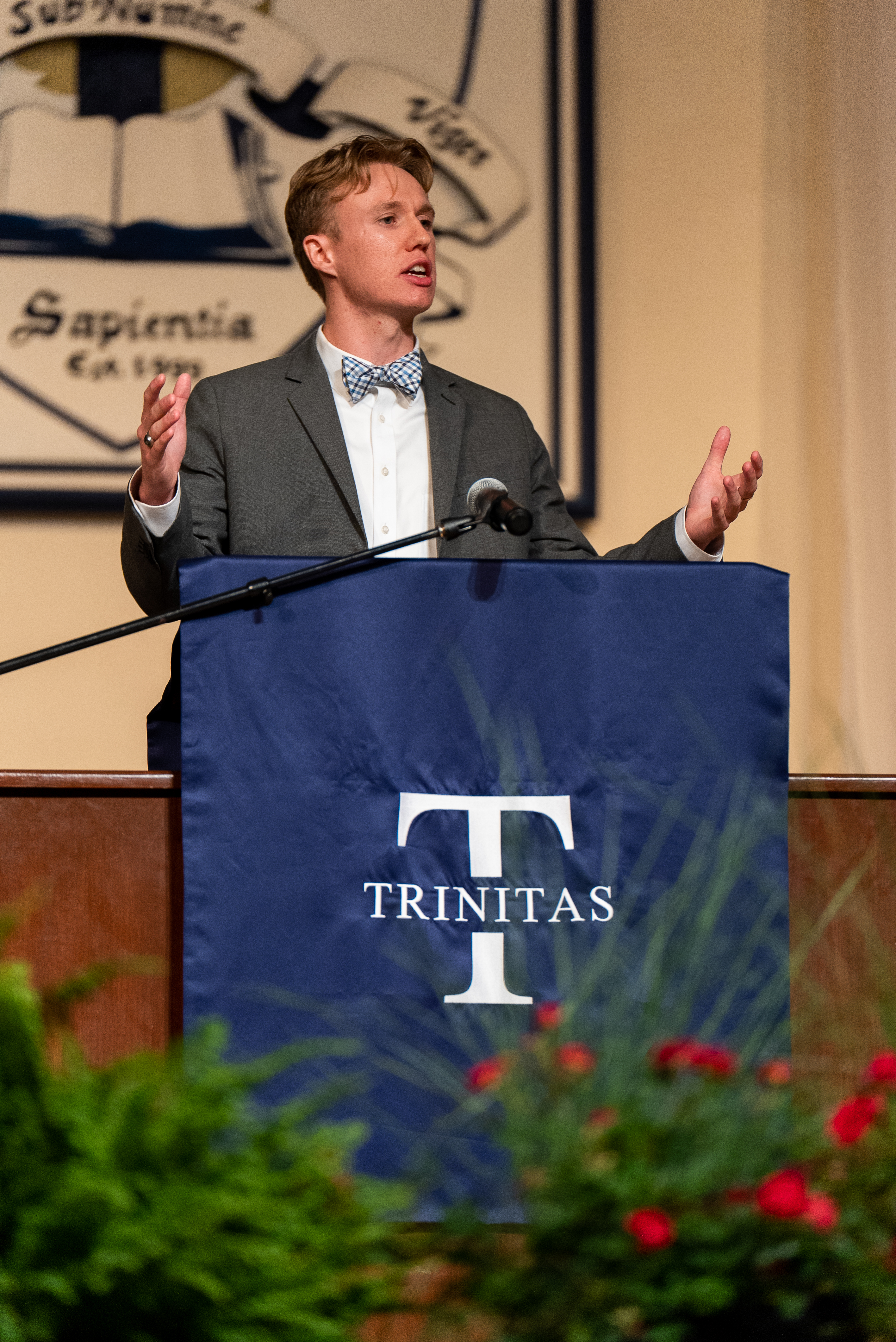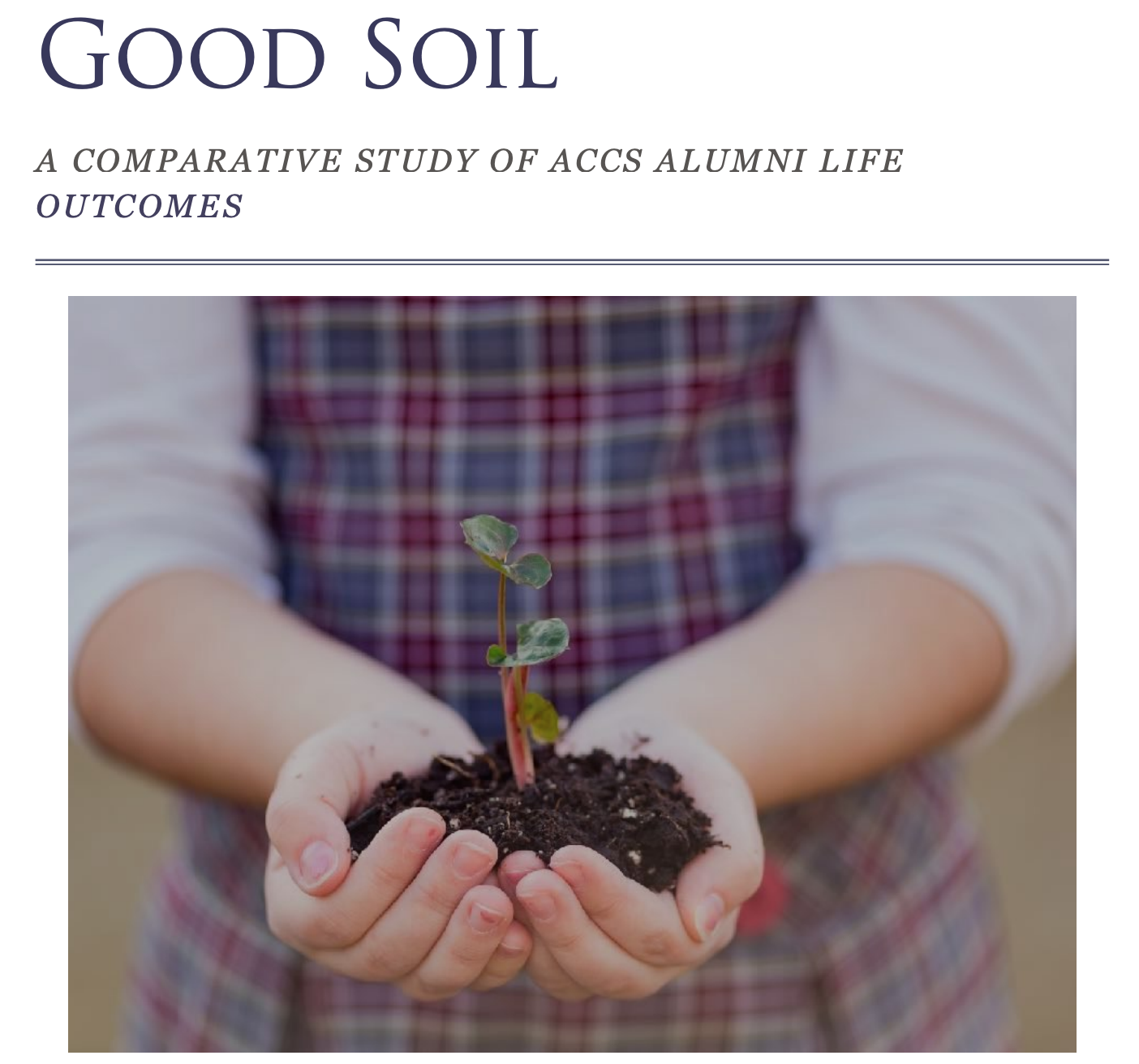Routines help to define a people. A group of market traders begins combing the news even before the trading bell rings at 9:30 a.m., hungry to get an edge on making the right move at the right time. A covey of construction workers share donuts and coffee before hitting the site for the day’s labor. A pack of public school kids rise from their seats to recite the pledge of allegiance and hear the crackle of morning announcements over the intercom. Routines do not require much attention to the routine itself—routines become second nature, an involuntary way of being in the world. Because we know that routines have the power to shape our orientation to the world, Trinitas starts the day with our own routine to orient and shape our way of being for the day ahead.
At a recent Annual Parent Meeting, Trinitas father and board member, Pastor Jon Mark Olesky, reminded us of the timely importance of Christian parents educating their children to engage their world. This is the third of three posts containing his comments.
The teaching needed is what is most often called, “wisdom” (Hb. khokmah). Many compromises will occur in Babylon without this wisdom. In the covenantal framework of Proverbs wisdom means skill in godly living. Proverbs, that often-neglected parenting book, the “father” repeatedly call his “son” to “find wisdom” (Prov 3:13), that is because children aren’t born possessing it, rather, “folly is bound up in the heart of a child” (and yes, “the rod of discipline” is needed to remove it!) (Prov 22:15). No, a foolish teenager doesn’t just “grow out of it,” wisdom must be given and received. Our children’s lives depend on it! “The teaching of the wise is a fountain of life, that one may turn away from the snares of death” (Prov 13:14). It’s the way a young man avoids “the forbidden woman” (Prov 5 and 7), and that is because “the fear of the Lord is the beginning of wisdom” (Prov 9:10).
Topics: Blog Posts, Parenting, Scripture, Christian Education
At a recent Annual Parent Meeting, Trinitas father and board member, Pastor Jon Mark Olesky, reminded us of the timely importance of Christian parents educating their children to engage their world. This is the first of three posts containing his comments.
“I don’t want to bring kids into this evil culture” is something I have heard more than once. Well-meaning Christians have long questioned the wisdom of bringing children into a fallen world. And while this hesitation might seem prudent, God doesn’t hesitate to command husband and wife, “Be fruitful and multiply and fill the earth” (Gen 1:28; 9:1). The earth is, no longer a utopian Eden, but a post-Eden wilderness, what the New Testament calls “Babylon” (Rev 17:5, 1 Pet 5:13-14). This Babylonian context isn’t foreign to children raised in covenant homes. The historical nation of Babylon was where the Jewish exiles were sent. Of those exiles, the most notable were four Jewish “youths… Daniel, Hananiah, Mishael, and Azariah of the tribe of Judah” (or their Babylonian names) “Belteshazzar, Shadrach, Meshach, Abednego” (Dan 1:1-7).
Topics: Blog Posts, Parenting, Scripture, Christian Education
As a father of five, I am greatly concerned with the cultivation of virtue in the hearts of my children. Frequent thought and active parenting has been invested in training my children in honesty, diligence, self-control, and respect. The lack of these virtues is tough to disguise. When children are disrespectful and lazy, succumbing to every desire of their flesh, they create what my mother would refer to as “a scene.” Yet behind the more common virtues, lies one that receives precious little airtime – Piety.
Topics: Blog Posts, Parenting, Classical Education, Christian Education, Virtue
Thank you so much for that kind introduction. Before we begin, I would like to express my sincerest thanks to the administration and to all the senior class parents for providing me the opportunity to speak to these graduating seniors before you all tonight. And I would be terribly amiss if I did not congratulate you, seniors, on the many accomplishments that have brought you to this very place on this momentous evening. My purpose this evening is two-fold and somewhat paradoxical in nature. On the one hand, my job is to remind you that all of this evening is about you. On the other hand, my job is to remind you that none of this is about you, at all. Like I said, somewhat paradoxical. But there is a method to this madness, and I hope to demonstrate as much over the course of the next few minutes. There are many things I could say to you this evening; in truth, there are many things that ought to be said to you this evening, but that’s what all these good people are for. Lord knows I’ll need the backup. Yes, there are many paths we could tread, but I thought it best to stick to one rather familiar to you, and to me as well. Our progression this evening will follow a sort of timeline: First, we’ll revisit the past, taking great pains to put a very fine point on just what it is that you have been doing here at Trinitas for the past 6, 8, 10—and for some of you—13 years of your life; next, we’ll pause and ponder the precise precipice upon which you are perched, at present; and finally, we’ll look to the future, daring, even, to prescribe what must be next. So, let’s roll back the clock.
Topics: Classical Education, Alumni, Christian Education, College Admissions, Christian Living, Truth, Goodness, and Beauty, Virtue
Classical Christian Alumni are Better Prepared for College and Life - Part III
No matter where we American Christians get our news these days, it seems to forebode the end of the world as we know it. The values many of us were raised with and still cling to are at best a fading part of the American Family’s core values. During the latter third of the twentieth century, a movement was launched that we generally refer to as the “sexual revolution,” and it was predicted to undo society to put it mildly. Whether what we are witnessing now is that undoing or we are being undone by something else is difficult to discern; that we are coming undone, however, seems clear.
Topics: Classical Education, Alumni, Christian Education
Last week’s post was the first in a series about the “Good Soil” survey that will run over the next few weeks. The survey, conducted by the University of Notre Dame and Cardus, reports on alumni from all types of schools. These are alumni who grew up in Christian families and are now between the ages of 24 and 42. Alumni from classical Christian schools, especially ACCS accredited schools like Trinitas, will be our focus. Two areas the survey measures in alumni are Christian commitment and Christian lifestyle, our focus this week.
Topics: Blog Posts, Parenting, Alumni, Christian Education
Two things are happening in this post. First, we are finishing up our series about the education journey by addressing the question, Is there a better path toward helping our children become virtuous human beings whose lives are surrendered to Christ? Second, and as a way of answering that question, we are kicking off a series about “The Good Soil” report that we endeavored to write a year ago but which was rudely interrupted by COVID-19.
Topics: Blog Posts, Alumni, Christian Education, True Education

.jpg)




.jpg)

